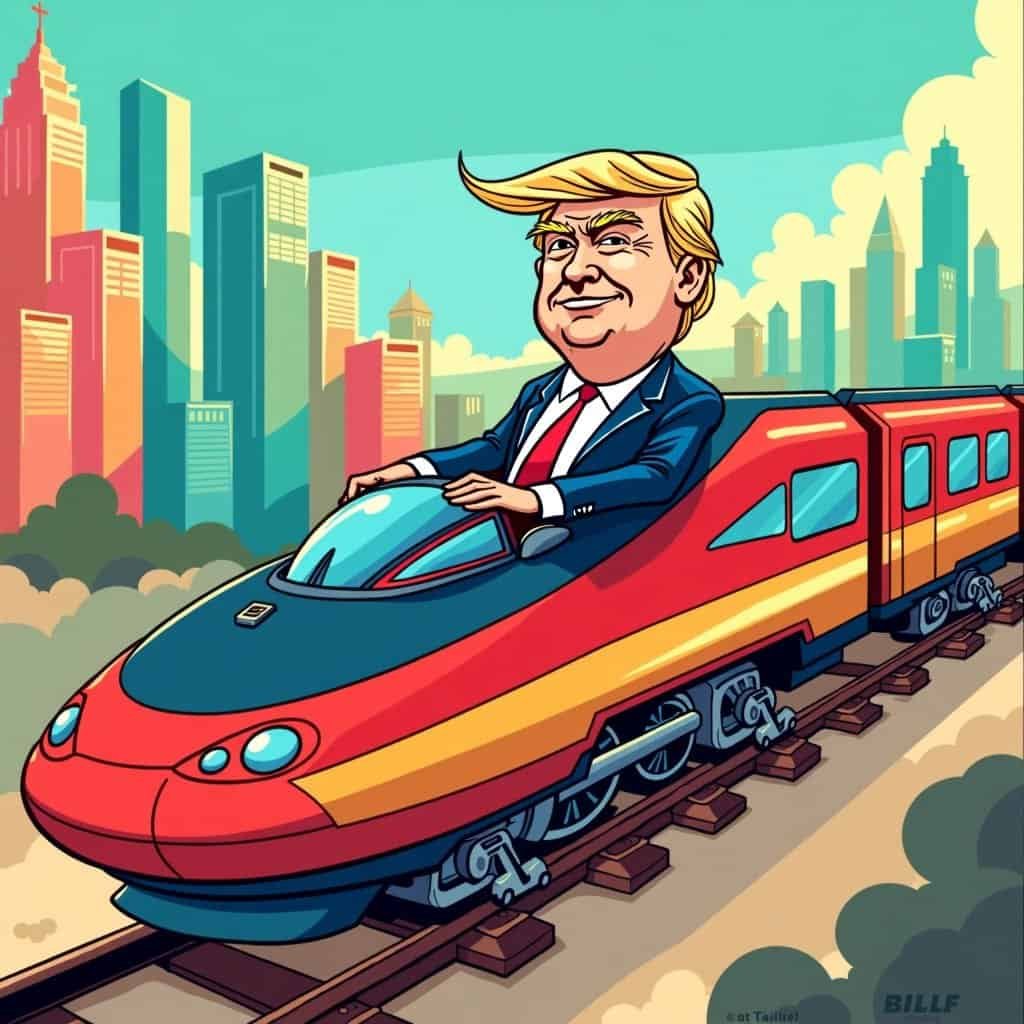On the Tracks of Change. As the challenging year of 2024 unfolded with one of the most debated presidential elections in recent memory, something special quietly took center stage across the nation. No, I’m not talking about fiery campaign ads. I’m referring to a grassroots-driven trend that should inspire pride and hope: the rise in voter-backed initiatives for rail and transit programs. These measures, spanning major urban areas, highlight a universal truth—America thrives when it invests in mobility, connectivity, and the future. Isn’t it amazing how much we can accomplish when communities come together?
Let’s start with Denver, Colorado. Here, residents passed Measure 7A, a commitment to sustaining funding for the Regional Transportation District (RTD). This decision means potentially $50-60 million will bolster transportation services annually. But this wasn’t just about maintaining bus routes. It’s about championing an idea—that dependable transportation connects hardworking Americans to opportunities, whether it’s a new job, dropping kids at school, or accessing healthcare. Local solutions work best, addressing core needs while empowering everyday people. Denver’s example is proof of that!
Transit Initiatives Across the Nation
| City/County | Initiative | Impact |
|---|---|---|
| Denver, CO | Measure 7A | $50–$60 million annually to support RTD operations. |
| Fairfax County, VA | $180 Million Bond | Funds critical WMATA system upgrades and maintenance. |
| Maricopa County, AZ | Proposition 479 | Implements a half-cent sales tax for light rail and transit projects. |
| Nashville, TN | Transit Improvement Plan | Enhances transit efficiency and drives community-focused urban growth. |
| Miami-Dade, FL | Advisory Vote | Shows strong public support for expanding rapid transit systems. |
Similarly, Fairfax County, Virginia gave a green signal to a $180 million bond targeting the Washington Metropolitan Area Transit Authority’s system upgrades. This is infrastructure investment at its finest—focused, strategic, and growth-oriented. Keeping trains and buses safe and efficient ensures economic hubs thrive. After all, wouldn’t you agree districts shouldn’t just grow—they should grow smart?
Meanwhile, out west, Maricopa County, Arizona, approved Proposition 479. A mere half-cent sales tax now becomes a game-changer ensuring light rail and transit system sustainability in a rapidly expanding region. Then there’s Nashville’s ambitious Transit Improvement Plan founded on the same heightened efficiency values: reduce waste, support community-driven growth, and emphasize independence over federal dependency. Once again, America shines brighter when voter-driven initiatives work to shape solutions close to home.
Miami-Dade’s Forward-Thinking Approach
Miami-Dade residents in Florida made waves too, enthusiastically advocating for expanding rapid transit systems. While it was an advisory vote, the level of support showcased their forward-thinking pursuit in prioritizing accessible networks for all its neighborhoods. These voters prioritize freedom of movement while bold infrastructure projects help reduce auto-dependency in ways that align perfectly with market principles.
Benefits of Miami-Dade’s Transit Expansion
- Increased accessibility for all neighborhoods
- Reduced traffic congestion
- Improved air quality
- Enhanced economic opportunities
- Greater mobility for residents and visitors
In Washington State, voters made their voices heard by rejecting Initiative 2117, a proposal to scrap the cap-and-trade system that’s been pulling its weight in funding transportation and environmental projects. Why did environmentally conscious Washingtonians give it a thumbs down? Simple: they saw the bigger picture. Keeping the cap-and-trade program intact means long-term transportation stability, which doesn’t just help the climate—it helps the wallets of hardworking taxpayers too. It’s about balance: making local transit financially and logistically practical while steering clear of the kind of extreme, one-size-fits-all redistribution schemes that have failed elsewhere. Washingtonians opted for common sense over ideology, and that’s a decision you can respect.
The Power of Local Solutions
Local solutions—rooted in responsible governance, self-empowerment, and clear budgets—work wonders. From Miami expanding multimodal networks onward, the American commitment extends beyond ideologies—heritage runs gear-connected!
Intriguingly, this surge once again proves the consistent outperformance regarding delivering practical prosperity partnerships. Why saddle families beneath higher federal leveraging schematics—when supporting complementary externalities costs public taxpayers substantially less overhead!? Uncontrolled endless redistribution merely stagnates momentum. Societies thriving involve smarter policies leveraging low percentages unlocking high independence reaping dividends long afterwards…
Future economic growth starts here: grassroots, individually dominant, decentralized, stewarded increments correctly leveraged for satisfaction gains, well-repeated.
Table of Contents
- Transit Initiatives Across the Nation
- Miami-Dade’s Forward-Thinking Approach
- The Power of Local Solutions






